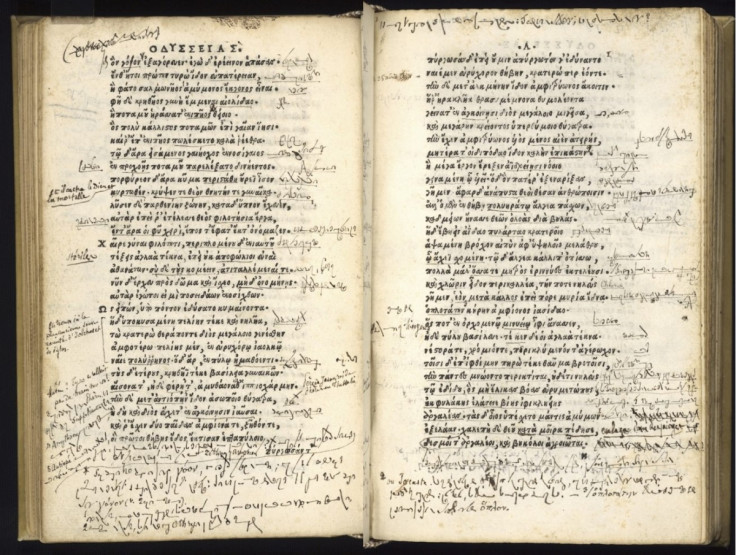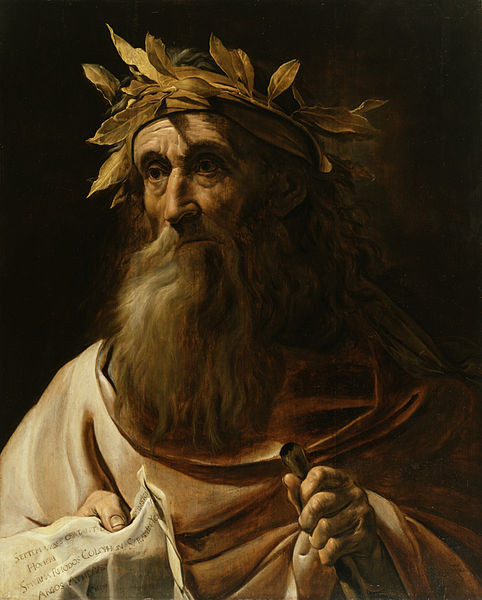Mystery of Ancient Notes in 1504 Copy of Homer's Odyssey Finally Solved

A 150-year-old mystery involving a 500-year-old copy of Homer's Odyssey has finally been solved.
In an investigation involving linguists, classicists, amateur sleuths and a $1,000 (£590) prize, experts were looking to discover how a rare Venetian edition of the Odyssey came to be covered in handwritten annotations by an unknown author.
The notes were believed to have dated back to the mid-19<sup>th century, but little else was known about them.
The edition was donated to the University of Chicago Library from collector M.C. Lang in 2007. The library's research centre called on experts to help decipher the notes and the prize money was offered up by Lang.
While the contest gathered a huge response online, the eventually winner was Italian computer engineer Daniele Metilli, who identified the script as a system of shorthand invented by Jean Coulon de Thévénot in the late 18<sup>th.

Metilli and colleague Giula Accetta, who is proficient in contemporary Italian stenography and fluent in French, found that the annotations are mainly French translations of the Greek text.
The pair reached their conclusion after rejecting several 19<sup>th century stenographic systems. They eventually found one that compared to Thévénot's shorthand system and began work translating the annotations.
Metilli wrote: "[In the shorthand system] every consonant and vowel has a starting shape, and they combine together to form new shapes representing syllables. The vertical alignment is especially important, as the position of a letter above or below the line, or even the length of a letter segment can change the value of the grapheme. This explains why most notes in the Odyssey shorthand are underlined – the line being key to the transcription."
The researchers are now looking to find out the author of the annotations, and why they only focused on one section of the text.
Metilli said social media and electronic resources helped him identify the code and translate the first fragments of the text. "If I didn't have access to online sources such as Google Books, the Greek Word Study Tool of the Perseus Digital Library and the French corpora of the CNRTL, I probably wouldn't have won. What great times we live in!"
© Copyright IBTimes 2025. All rights reserved.






















